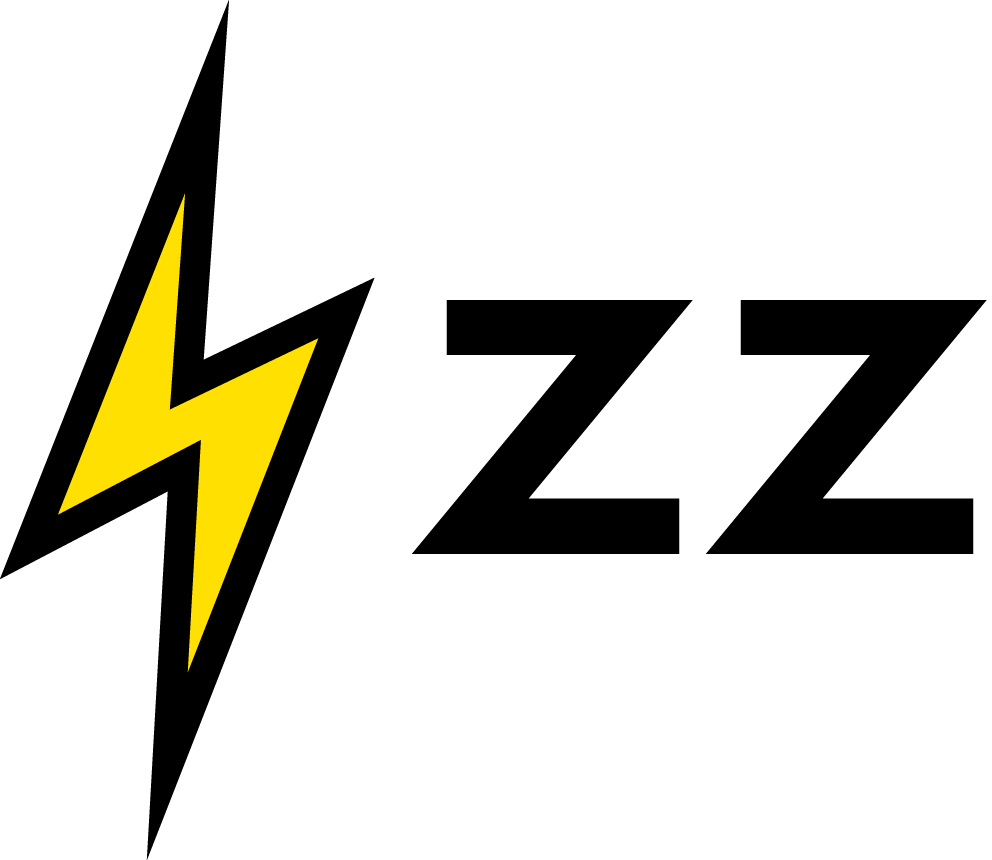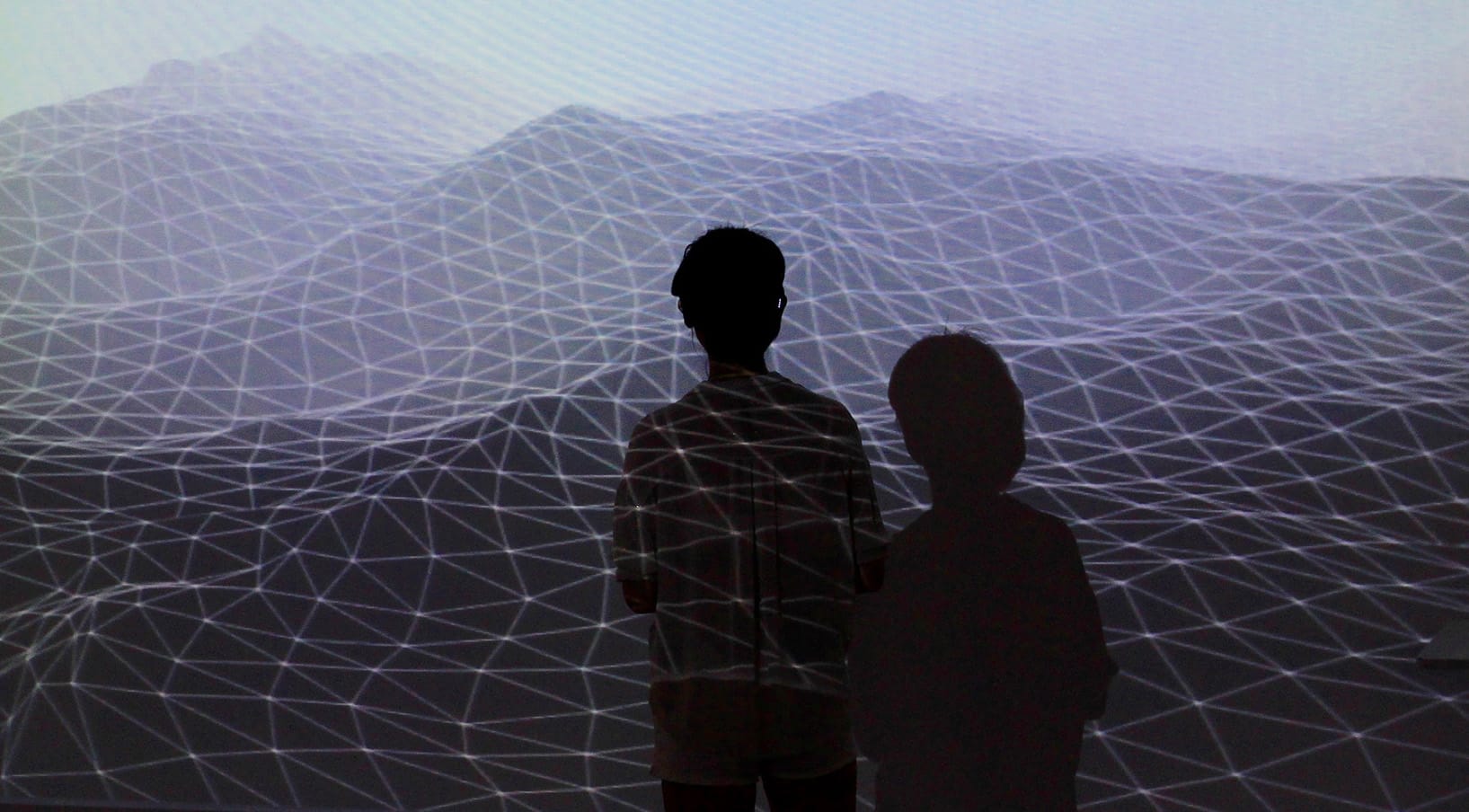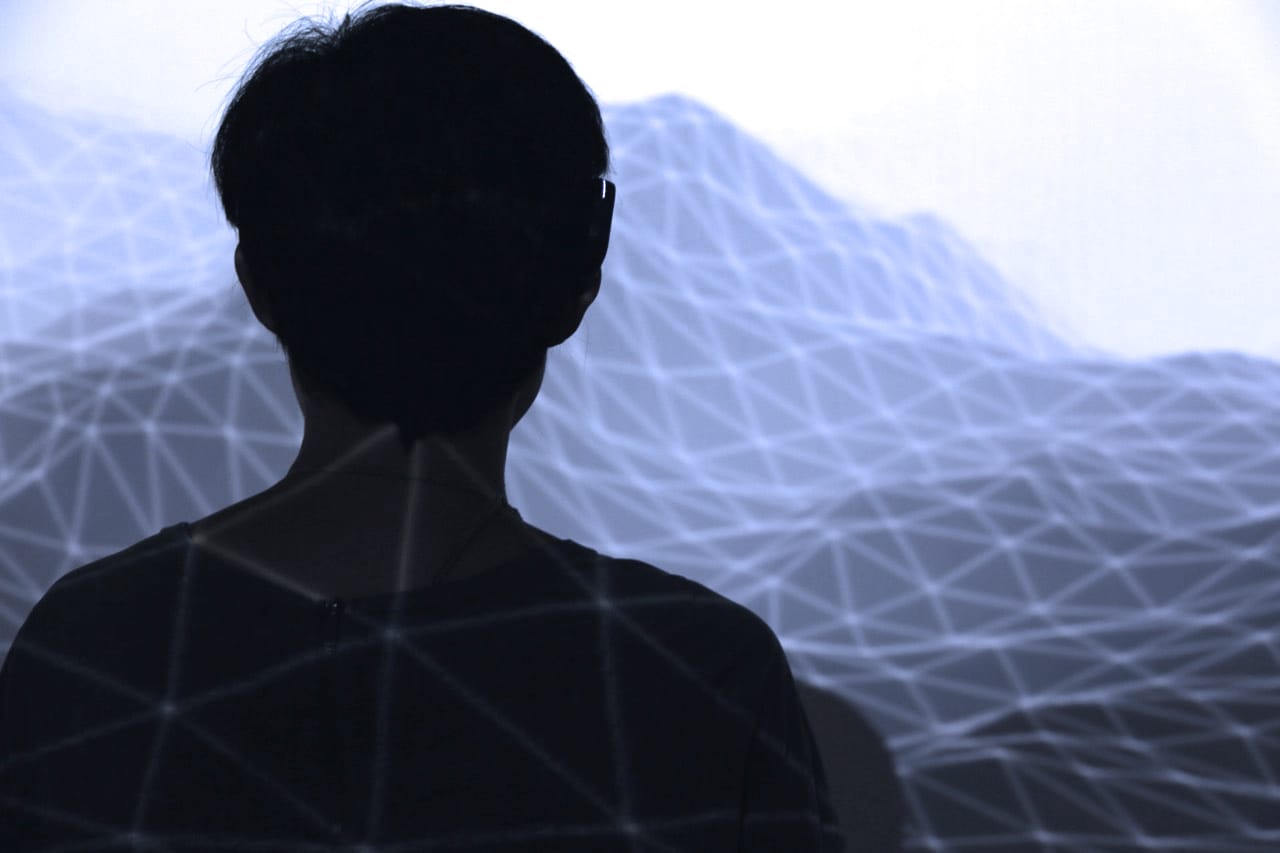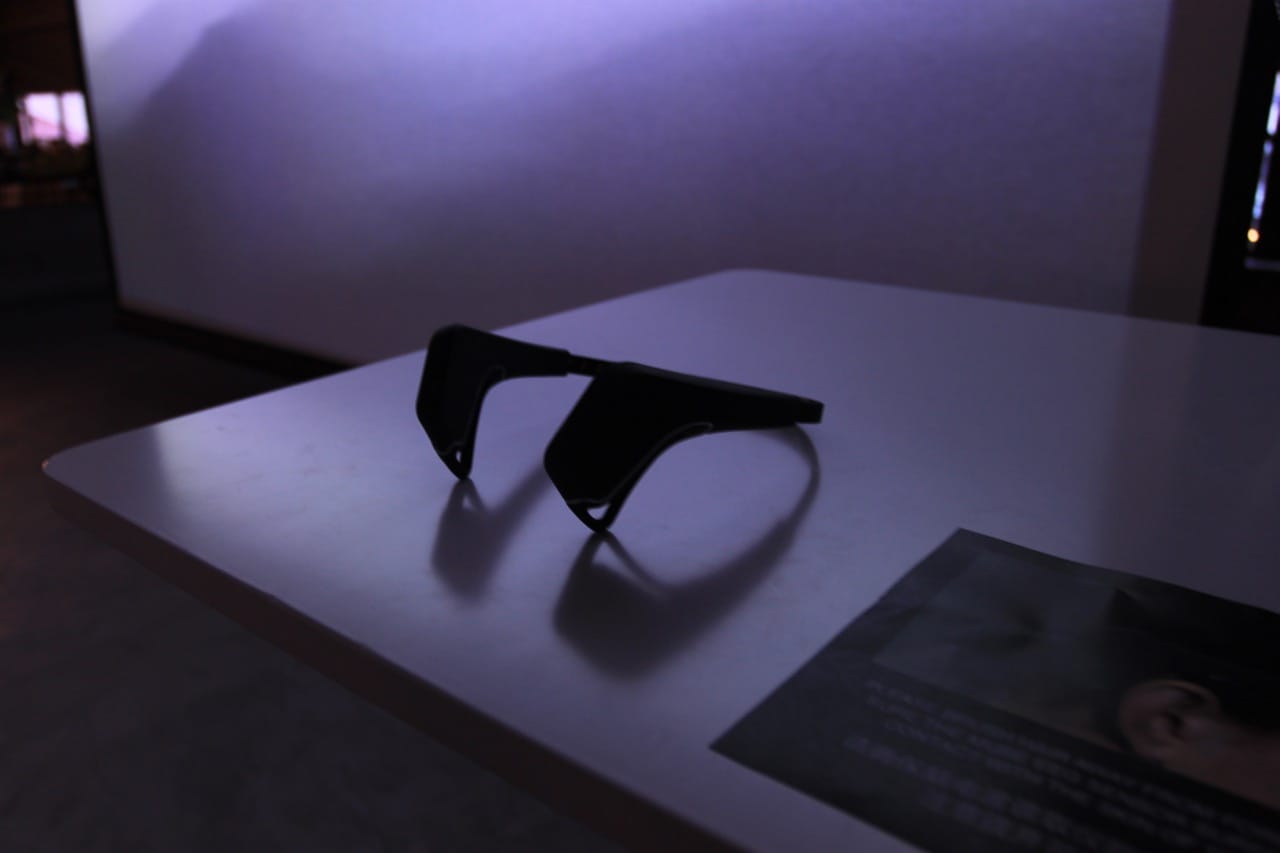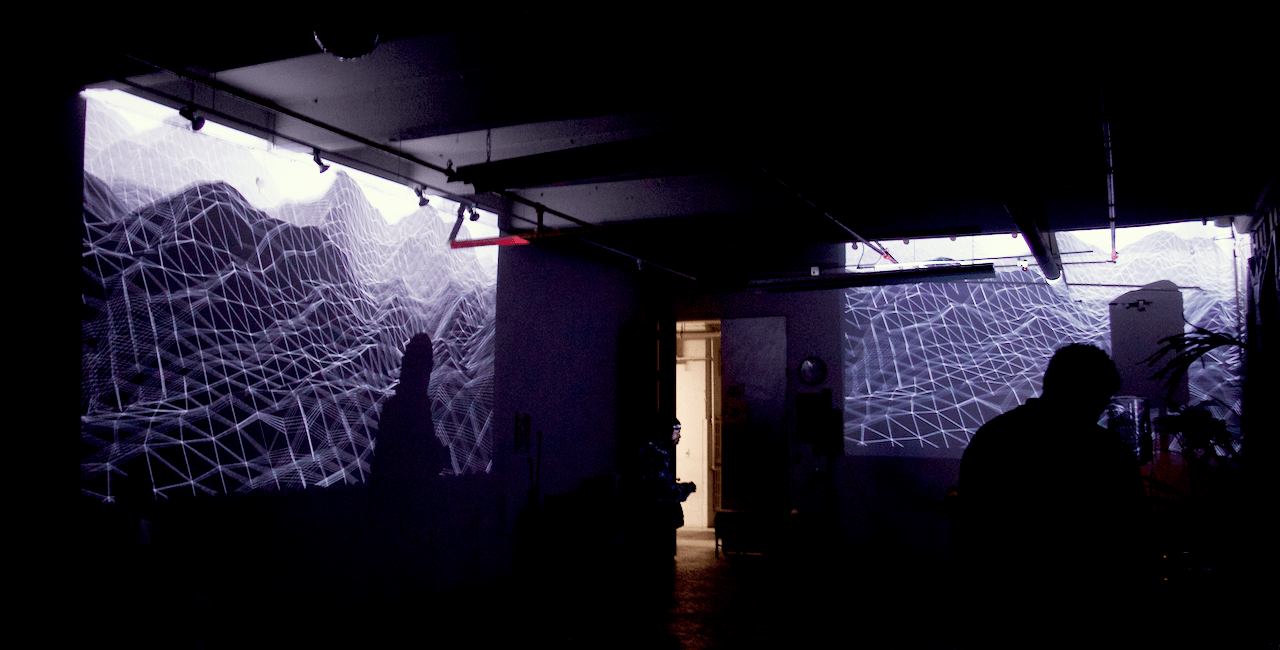A digitally simulated ocean, resonates with the audience’s mind.
The installation is comprised of an EEG brainwave sensor and an animated projection of an ocean.
Chinese idiom Nao Hai could be literally translated into “Brain Ocean”,it is an analogical representation simply for “The Mind”, implies the similarities between the mind and the ocean – mysterious, deep and almost intelligently incomprehensible. The ancient Chinese has been very interested in the relationship between the mind and the physical reality. By coining the word Nao Hai, they expressed an ideology of connecting the reality and the mind. I’m fascinated by the analogy and were driven to create something that could picture this idea using new media technology.
“脑海”是一个交互艺术装置。由一个脑波检测器(EEG sensor)和数字生成的大海组成。
“脑海”是一个交互艺术装置。由一个脑波检测器和我们用计算机生成的大海组成。脑波检测器(EEG sensor)可以检测到人类大脑的基本活动。大海的海浪会受到用户脑波的活跃程度的影响。简单说,大脑越活跃,海浪越翻滚,反之,大脑越平静,海浪越平静。
装置由脑电波检测器和海洋的动画投影组成。随着参与者的心灵活动,波浪上升和下降。正如中国词语“脑海”可以直译为“脑的海洋”,也代表着心灵。心灵就像一个海洋:神秘,深刻,仿佛有着无限的智慧。古代中国人对心灵与物质现实之间联系十分在意。通过创造“脑海”这个词表达了一种将现实与思想联系起来的意识形态。
